How BU Responded to a Historic Public Health Crisis
Drone footage of the Charles River Campus, shot on April 23, captures an eerily quiet landscape. Video by Above Summit
How BU Responded to a Historic Public Health Crisis
The story, in images and words, of how the community turned to remote teaching, learning, and working—almost overnight
When the 2020 spring semester started, on January 21, it didn’t take long for the University to settle into its typical high-energy rhythm. The new Howard Thurman Center for Common Ground, three years in the works, opened amid a weeklong celebration. The New Hampshire presidential primary was coming up, and student activists were trekking across the state line to knock on doors and work the phones for their favorite candidates. The men’s and women’s basketball teams were on winning trajectories. At the School of Medicine, researchers had developed a new algorithm that relies on brain scans, age, gender, and other indicators to more accurately diagnose Alzheimer’s disease. Freshmen had made it through their first semester, and seniors had an eye on the finish line.
The University, like its peers around the country, was also closely monitoring a growing threat, already on the march across the globe: the coronavirus. (The United States had confirmed its first case on January 15.) By March 10, with the number of COVID-19 cases surging, Massachusetts Governor Charlie Baker declared a state of emergency. The next day, BU announced all classes would be conducted remotely and advised students not to return to campus after spring break. Amid social-distancing and stay-at-home advisories, the BU campuses, normally pulsing with 35,000 undergraduate and grad students and 10,000 faculty and staff, swiftly emptied.
It is my privilege to be part of a community that has demonstrated its resilience, creativity, and, most of all, an unwavering commitment to our students and the pursuit of scholarship and knowledge…
But the rhythm didn’t stop—it just shifted, as faculty, almost overnight and with little time for preparation, began teaching from their homes, while students resumed classes in childhood bedrooms, and administrative staff worked from makeshift offices at dining room tables. While much of the University’s research ground to a halt, hundreds of BU scientists—many of them collaborating with the National Emerging Infectious Diseases Laboratories on the Medical Campus—mobilized with laser-like efficiency to find therapies, vaccines, new tests, and better medical supplies. BU Admissions quickly pivoted to virtual and online programming for admitted first-year and transfer students, and for prospective students. And on April 17, the MED Class of 2020 made history when they graduated a month earlier than scheduled so some of them could immediately begin practicing medicine on the front lines of the pandemic fight.
“We often talk about Boston University being responsive and nimble and entrepreneurial despite our size, and the past several months have been a master class in that regard,” said President Robert A. Brown, in a letter to the BU community in May. “It is my privilege to be part of a community that has demonstrated its resilience, creativity, and, most of all, an unwavering commitment to our students and the pursuit of scholarship and knowledge…. The campus may be shuttered, but the energy and resolve of the BU community is alive and well.”
The photos below capture how the crisis unfolded on campus, and how the community came together, despite being forced apart, during an unprecedented time.
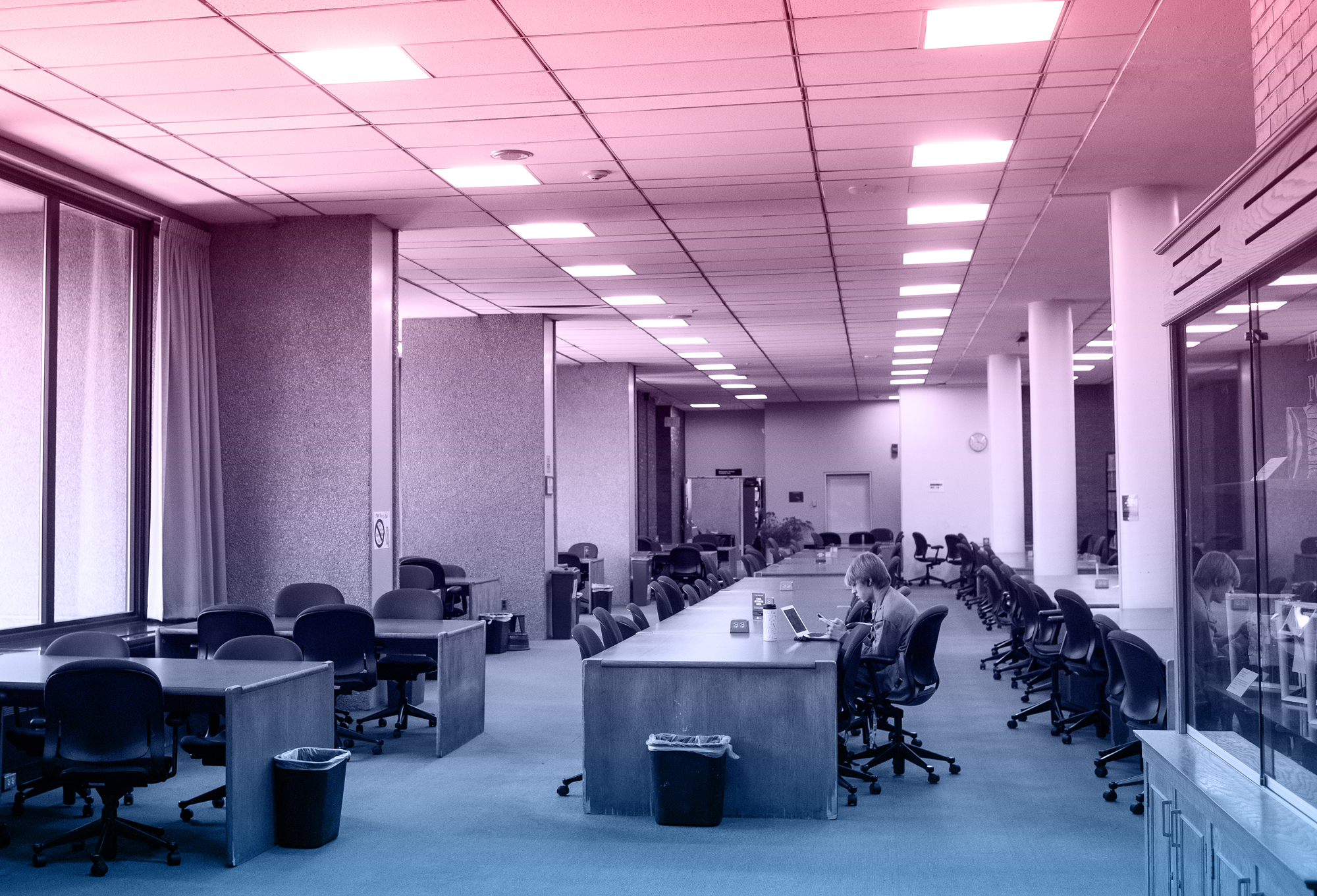
January
21
Classes begin. BU officials are keeping a close eye on the coronavirus outbreak.
30
The University postpones its Shanghai study abroad program, which was to begin in mid-February.


February
24
Shisong Chen (LAW’15,’20) and a team he’d organized—16 Chinese classmates and several dozen other volunteers—work to send protective gowns, masks, gloves, and safety goggles to five hospitals in southeastern China’s Zhejiang Province, hit hard by the coronavirus.
March
02
BU launches a COVID-19 information website to address some of the most pressing issues facing the University community.
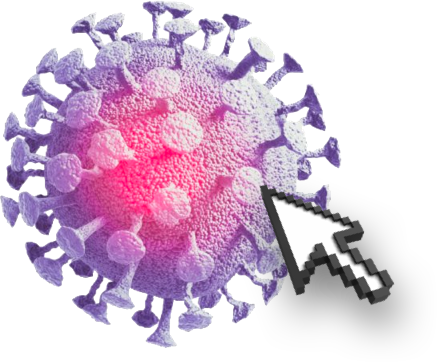
04
Alternative Service Break trips to 20 locations across the country are suspended, and all University-sponsored international group trips for the spring semester are canceled.
09
The women’s basketball team beats American University, making it to the Patriot League semifinals for the first time since the Terriers joined the conference in 2013. They are scheduled to host Lehigh on March 12, but the league cancels the tournament.
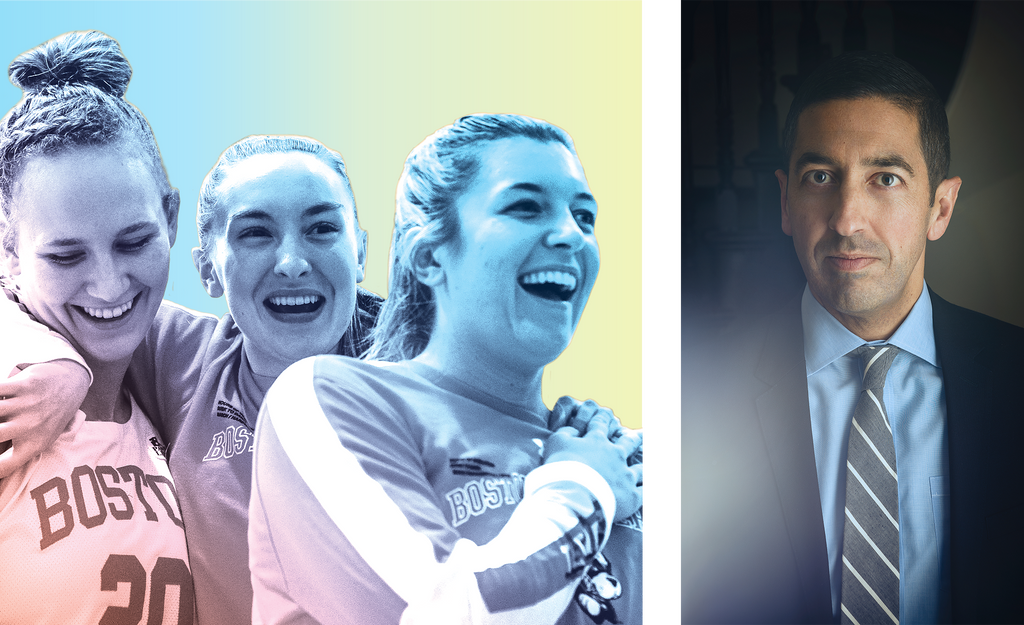
10
The Massachusetts Public Health Association announces that Sandro Galea, dean of the School of Public Health and Robert A. Knox Professor, will cochair a statewide emergency task force on coronavirus and equity. The goal is to help ensure that low-income people, immigrants, the homeless, and other vulnerable populations aren’t disproportionately affected by the disease.
11
BU announces it is moving all classes to remote teaching and learning starting March 16, and advises students who are away for spring break not to return to campus. Residence and dining halls remain open for those who need to remain on campus.
11
The men’s basketball team upsets top-seeded Colgate in a thriller, winning the Patriot League championship and advancing to their first NCAA Tournament appearance since 2011. The NCAA cancels the 2020 March Madness tournament on March 12. That didn’t stop the Terriers from basking in the glow of the title. “With everything going on, I’m really grateful for the opportunity,” says Javante McCoy (Questrom’21). “Just being able to play the game and experience that, to share the moments at the end of the game—it meant a lot.”
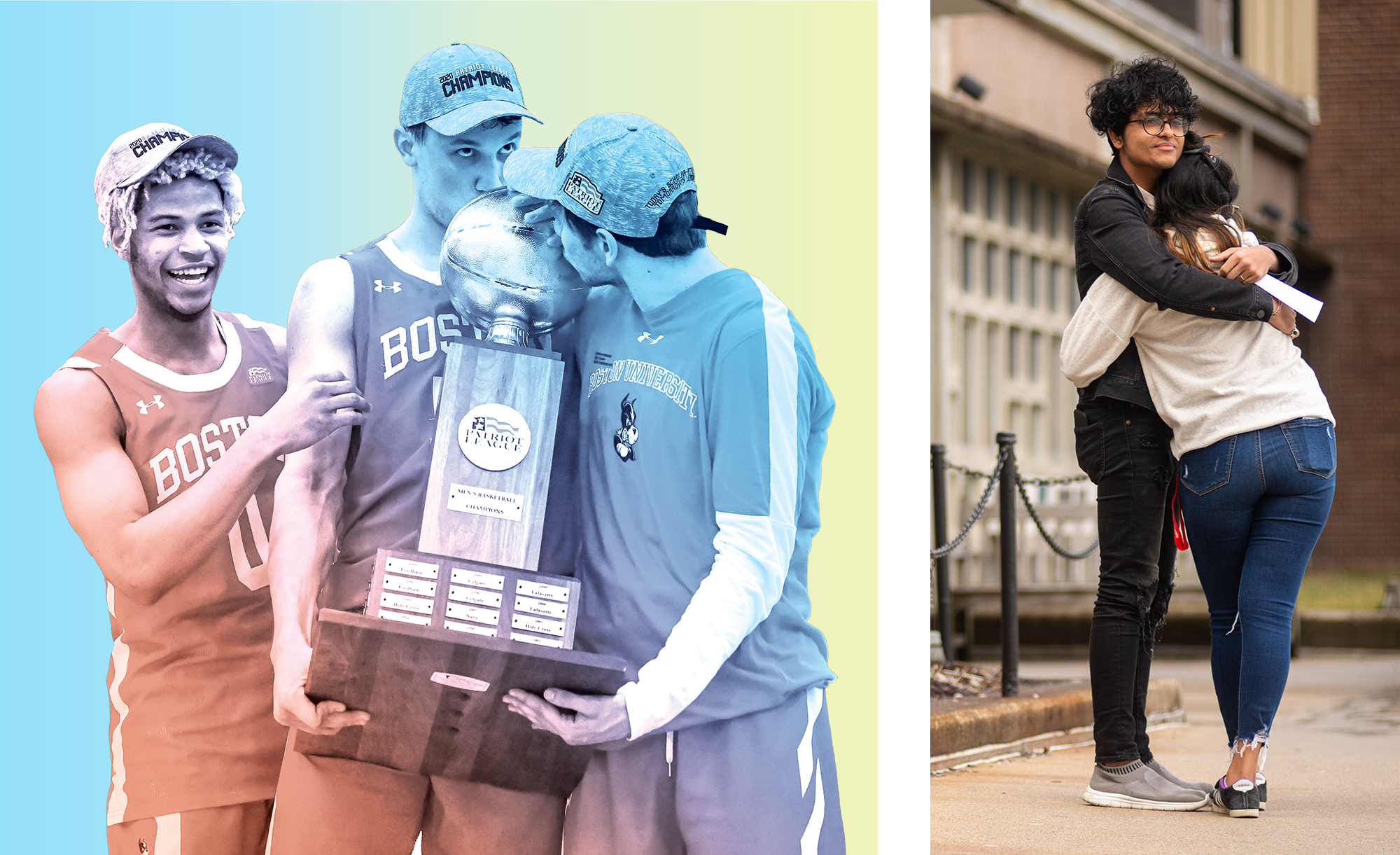
17
BU extends remote teaching and learning through the end of the spring semester and announces that all students, with exceptions for emergency circumstances, must leave campus.
19
Scientists, led by Robert Davey, a BU School of Medicine professor of microbiology, start suiting up at BU’s National Emerging Infectious Diseases Laboratories to conduct research on live samples of the novel coronavirus, the first team in New England to start such work on the global pandemic.
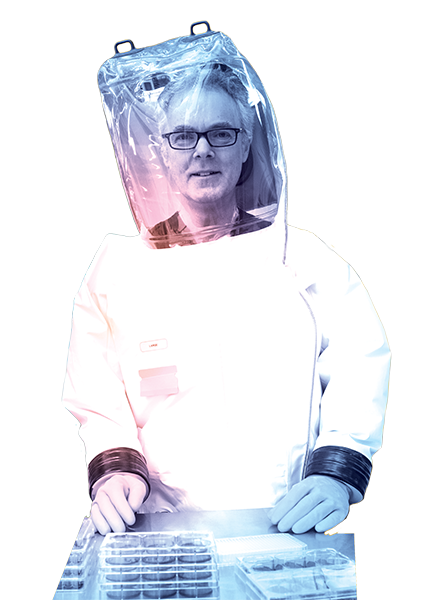
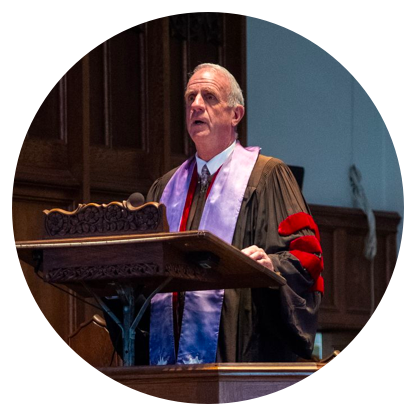
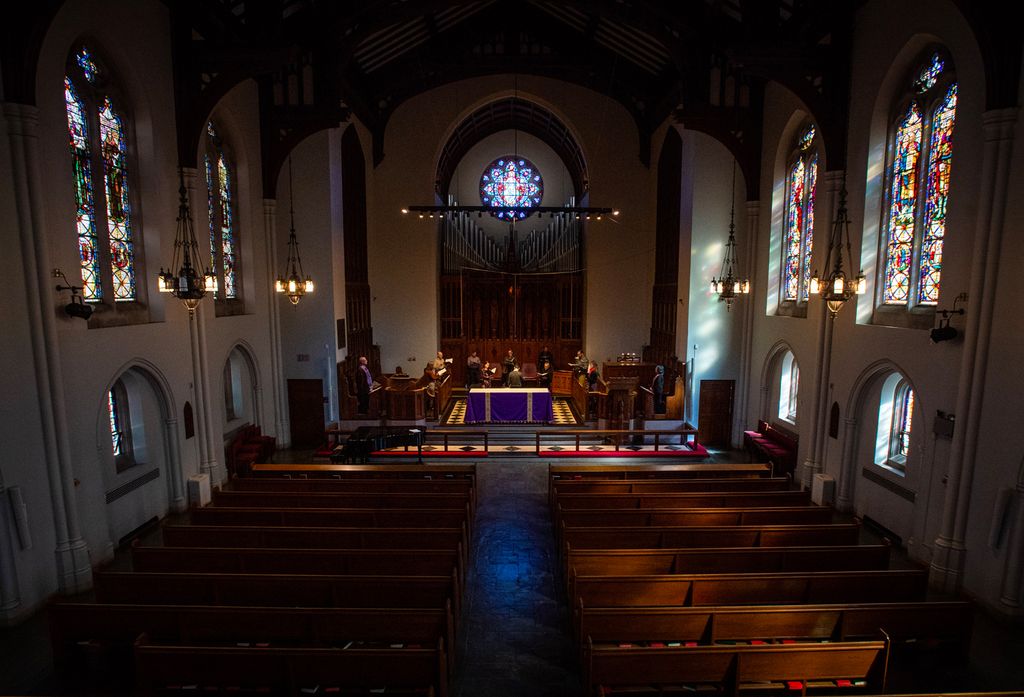
22
The Rev. Robert A. Hill, dean of Marsh Chapel and a School of Theology professor of New Testament and pastoral theology, preaches to an empty church. His sermon, which is live on WBUR and at wbur.org, addresses the discombobulating feel of this moment.
25
With high school juniors now unable to take the standardized tests required for admission by many colleges and universities, BU says it will go test-optional for undergraduate students applying for the fall 2021 and spring 2022 semesters.
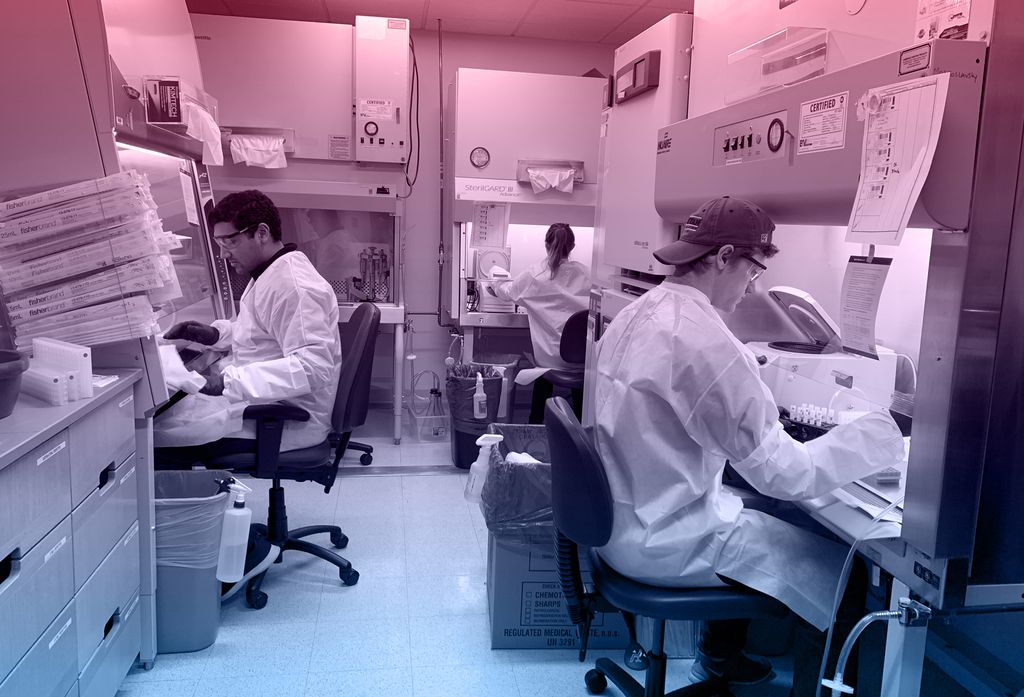
26
The Center for Regenerative Medicine at BU’s Medical Campus has transformed into an all-out operation running same-day COVID-19 tests for Boston Medical Center.
26
BU President Robert A. Brown announces the University is postponing its 147th Commencement, originally scheduled for May 17. Unlike many schools, BU did not opt to cancel or have a virtual graduation.
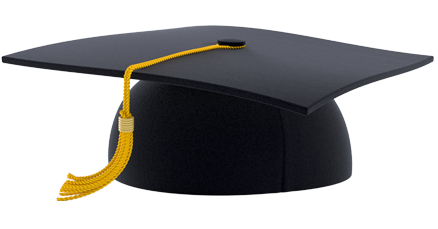
27
Jean Morrison, University provost and chief academic officer, announces that undergraduate, graduate, and nondegree students will be able to choose between keeping their letter grade in each class and a Credit/No Credit option.
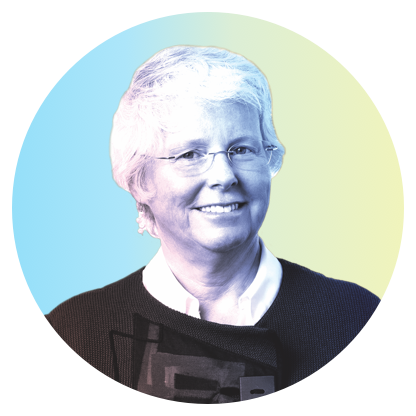

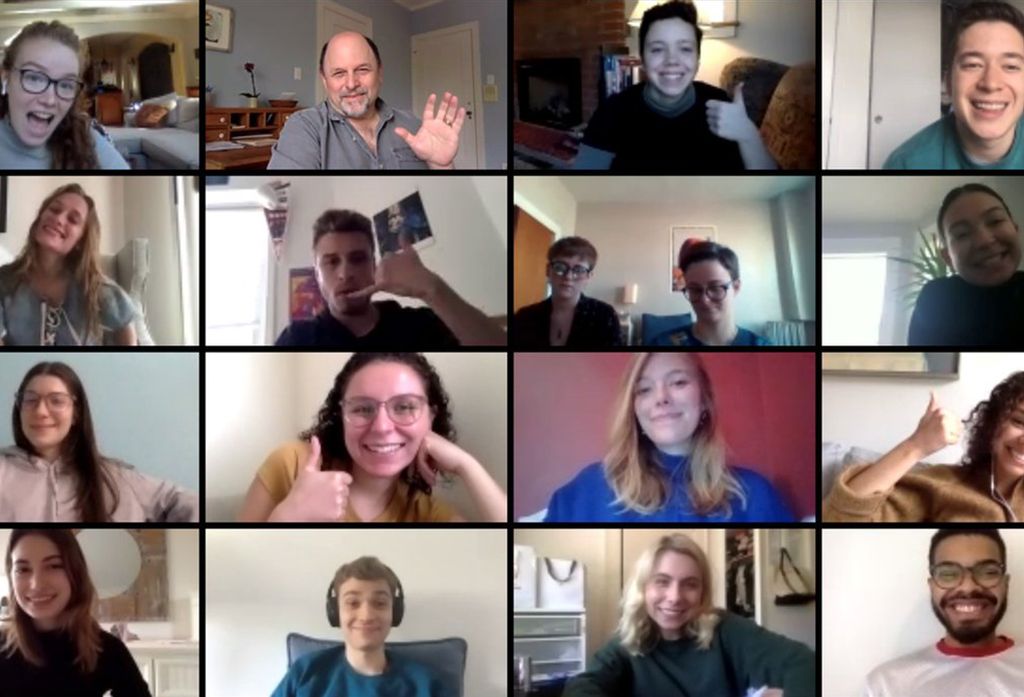
31
Tony-winning actor Jason Alexander (CFA’81, Hon.’95) speaks from his home in California via Zoom with 38 College of Fine Arts acting and theater arts majors. Students talked with Alexander about what the coronavirus pandemic means for the live arts and what students entering the industry can do during this time of isolation to prepare for when the lights are turned back on.
April
06
Scientists at BU’s National Emerging Infectious Diseases Laboratories have found a way to light up the SARS-CoV-2 virus using glowing antibodies, making it possible to detect the virus as it infects laboratory cell cultures. It’s the first major step forward in their SARS-CoV-2 research, which began on March 19. They and other NEIDL teams—including one group examining SARS-CoV-2 and the immune response it inflames in animals—are the only scientists in New England working with live copies of the novel coronavirus.
07
BU cancels all in-person summer activities on the Charles River Campus, and with exceptions, on the Medical Campus, and offers classes remotely for the two summer sessions.
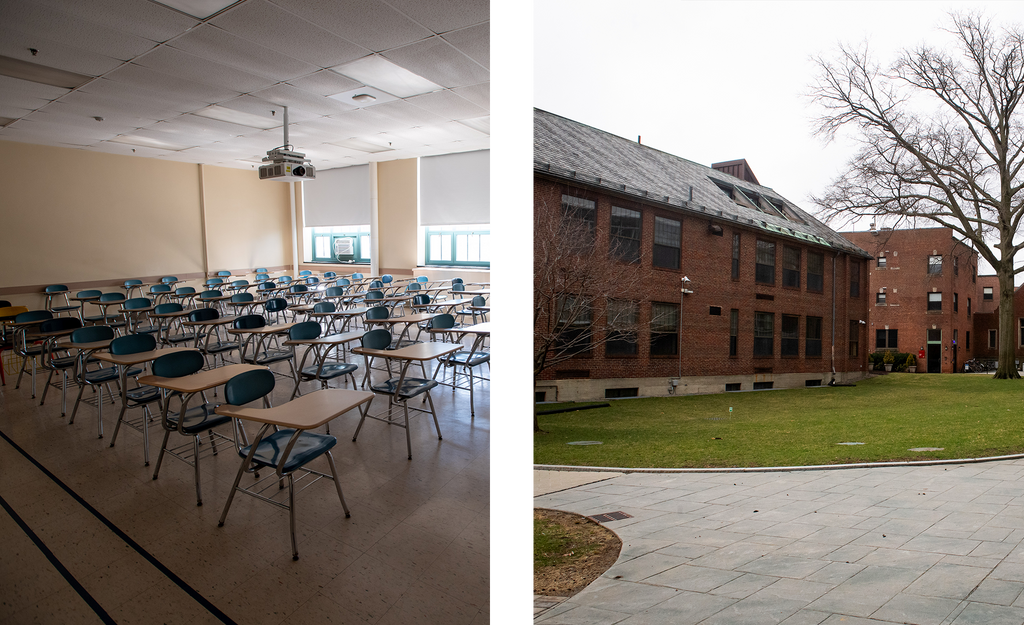
09
BU announces it will temporarily house those who work with the homeless, opening an empty student residence on the Fenway Campus to 75 employees of Pine Street Inn, the nonprofit operating numerous Boston shelters and residences for homeless people.
10
President Robert A. Brown unveils a plan to focus on ways that BU can return to in-person, on-campus operations in the fall. The recovery plan focuses on such questions as what classes might look like if gatherings are restricted to a limited number of people and how Dining Services could operate without risk of transmitting the coronavirus.
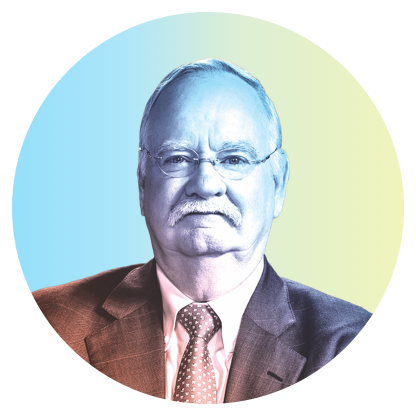
10
The School of Public Health launches a noncredit Mini-MPH, which is free, online, and available to the public and aims to introduce the fundamental concepts of public health to a broad audience.
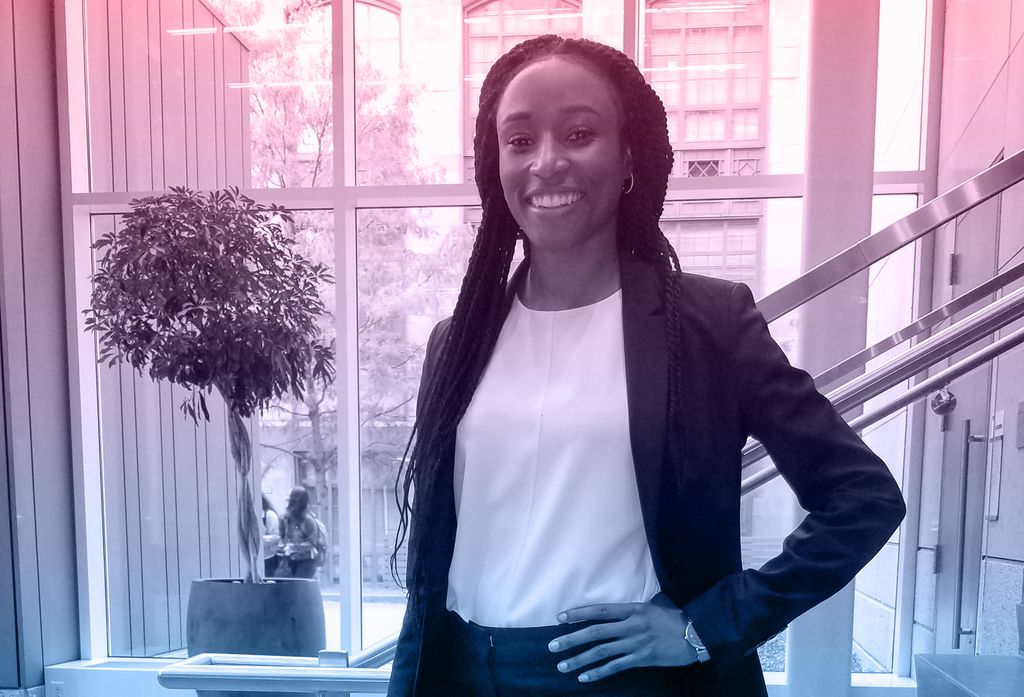
15
Responding to the commonwealth’s postponement of the bar exam, third-year law students at BU and other Massachusetts schools of law petition the state’s Supreme Judicial Court and the Board of Bar Examiners for an emergency diploma privilege allowing them to practice law without taking the exam. The Massachusetts bar exam, postponed on March 30, is now scheduled for September 30 and October 1, dates that have prompted petitioners to argue that it is susceptible to disruption from a second wave of COVID-19.
17
The School of Medicine Class of 2020 graduates, remotely (see below).
27
The College of Communication hosts the 40th annual Redstones Film Festival virtually. The Redstones—sponsored by the Sumner M. Redstone Charitable Foundation, established by Sumner M. Redstone (Hon.’94)—honor the best films written and directed by COM undergrad and grad students.
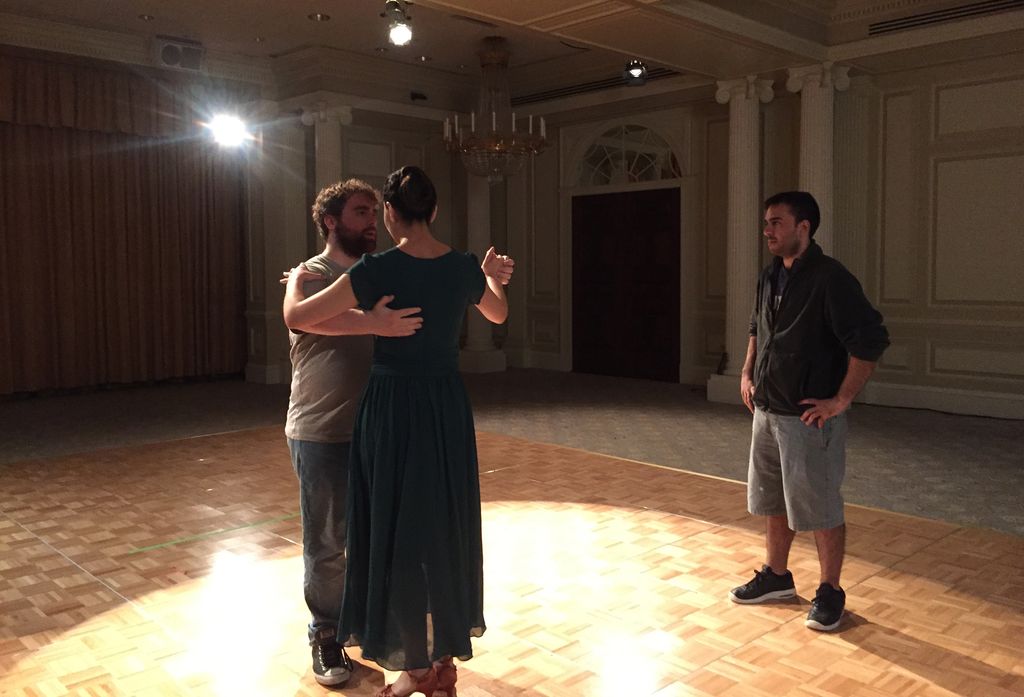
29
BU announces a plan for the fall semester that will move 44 graduate and professional programs to a new “hybrid/simultaneous” format. The approach will simultaneously offer in-person classes for students who can be on campus, and via various technologies to students on or off campus.
May
01
The annual Senior Class Breakfast is held virtually, from homes around the world. President Robert A. Brown addresses the Class of 2020, and actors Kim Raver (CFA’91), Russell Hornsby (CFA’96), and Jessica Rothe (CFA’09) make guest appearances, all via Zoom.

05
Residence Life staff hand-delivers exam week care packages, with an array of treats and a “Good luck on your finals” message, to each of the 400-plus students still living on campus.
06
The University unveils the first phase of its plan to recover its vast research activities. Gloria Waters, vice president and associate provost for research, says ramping up lab work will be gradual and contingent on public health advisories.
13
BU scientists receive nearly $1.9 million in new funding from the Massachusetts Consortium on Pathogen Readiness (MassCPR) to accelerate coronavirus research. MassCPR awarded a total of $16.5 million to 62 coronavirus research projects. Much of the funded work is being done in collaboration with scientists at the University’s National Emerging Infectious Diseases Laboratories, one of only a handful of facilities in Massachusetts capable of working with live, patient-derived samples of the coronavirus.
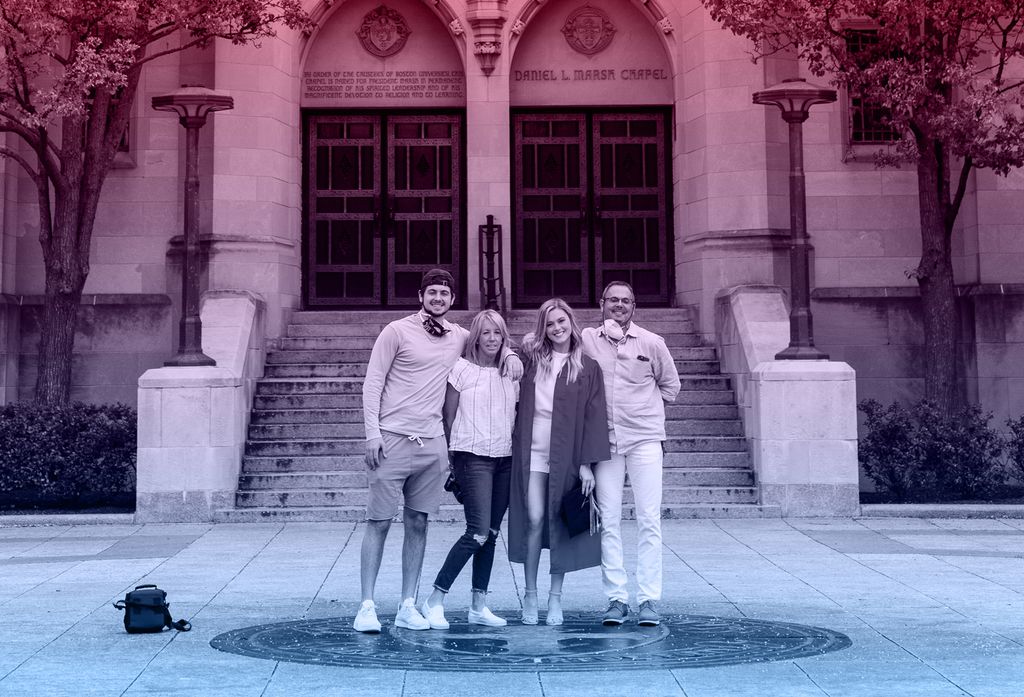
17
Commencement may be postponed, but the University is committed to celebrating the Class of 2020. The class gathers virtually to toast their achievements, and individual schools and colleges host a variety of events online.
June
01
BU announces a new hybrid teaching format, called Learn from Anywhere (LfA), for the fall, which will give arriving freshmen and returning undergraduate students a choice of attending in-person classes or taking classes remotely. The flexibility of LfA is designed to accommodate safety requirements that may be imposed by public health authorities to control the spread of COVID-19, as well as by travel and other challenges faced by BU students. The aim is to present the same academic content to all students, whether they are in a classroom, in a BU residence, or in another country, and to allow all students to take part in the same classroom discussions.
Comments & Discussion
Boston University moderates comments to facilitate an informed, substantive, civil conversation. Abusive, profane, self-promotional, misleading, incoherent or off-topic comments will be rejected. Moderators are staffed during regular business hours (EST) and can only accept comments written in English. Statistics or facts must include a citation or a link to the citation.